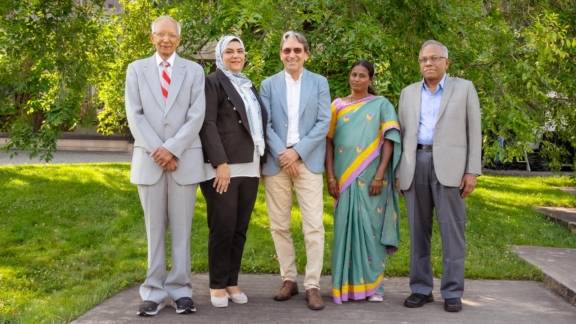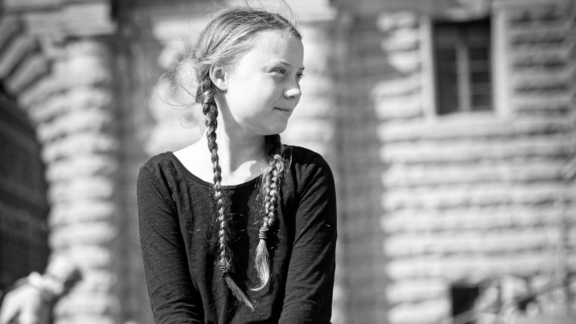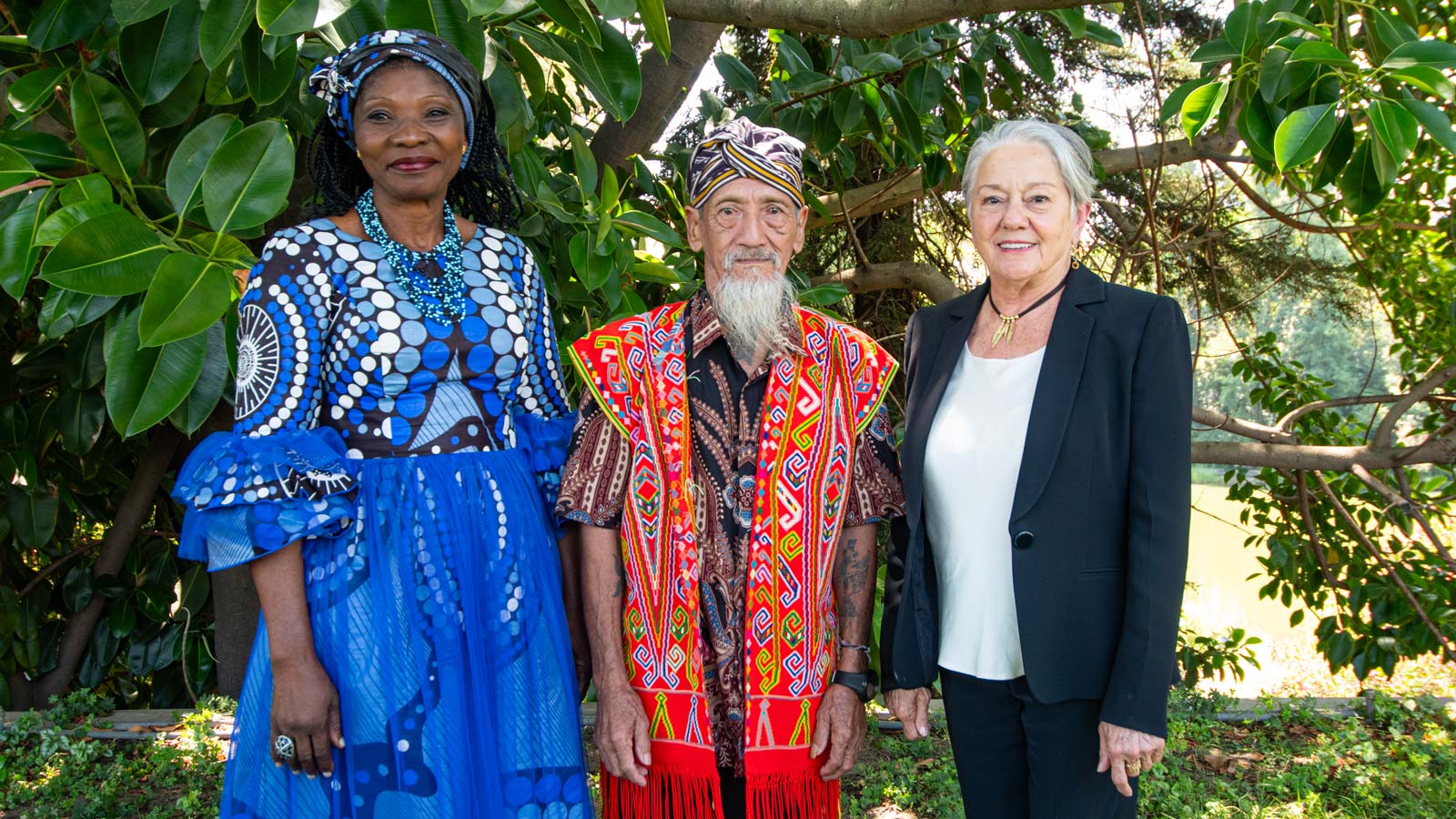
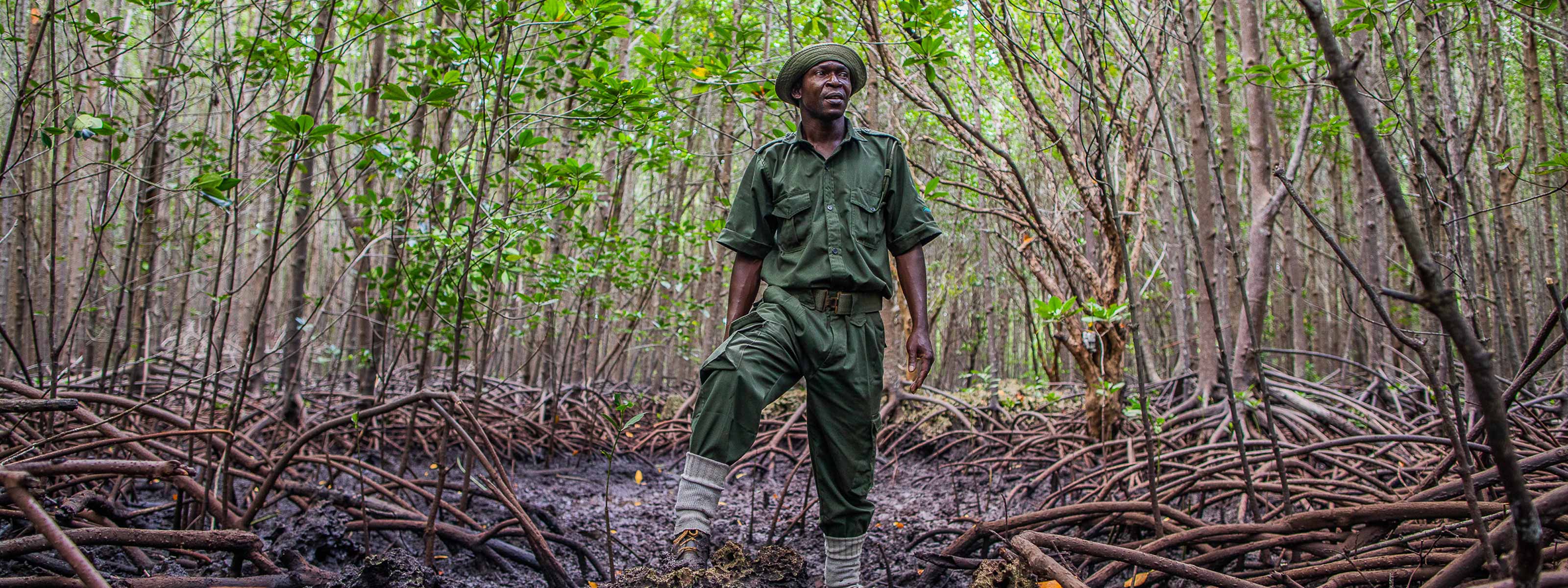
Climate Visuals. Mangroves, Kenya © Anthony Ochieng
Impact of the Prize
The Prize for Humanity has enabled individuals and organisations to make huge advances in tackling climate change.
Since the Prize was launched in 2020, the independent Jury – chaired this year by Angela Merkel – has recognised different approaches to climate change including youth mobilisation, coalition building, developing localised solutions, and scientific research.
The Prize strengthens communities facing the effects of climate change, helping them to adapt and build resilience at a local level. It supports scalable solutions that will have real impact nationally and globally.
Helping humanity overcome the biggest challenge we face will be the ultimate legacy of the Prize.
Winners
Andhra Pradesh Community Managed Natural Farming, Rattan Lal and SEKEM
Three sustainable agriculture pioneers have been announced by the Calouste Gulbenkian Foundation as winners of the 2024 Gulbenkian Prize for Humanity: Andhra Pradesh Community Managed Natural Farming (India), a state-wide programme supporting smallholders, predominantly women, switch to natural farming; Rattan Lal (USA/India), a scientist who pioneered a soil-centric approach to agriculture; and SEKEM (Egypt), in recognition of its biodynamic agriculture work, in particular its flagship initiative the Egyptian Biodynamic Association – a network enabling farmers to transition to regenerative practices.
They were chosen in recognition of their significant contributions to global food security, climate resilience and ecosystem protection. The prize funding will be split equally to help continue and scale their work for more secure and sustainable food systems.
Bandi “Apai Janggut”, Cécile Bibiane Ndjebet and Lélia Wanick Salgado
Three inspiring individuals from the Global South were selected as winners of the fourth edition of the Prize: Bandi “Apai Janggut”, customary community leader from Indonesia; Cécile Bibiane Ndjebet, campaigner and agronomist from Cameroon; and Lélia Wanick Salgado, environmentalist, designer and scenographer from Brazil.
They were chosen for their leadership and tireless work over decades to restore vital ecosystems including forests, landscapes and mangroves, and protect land with and for the benefit of local communities. The Prize funding was split equally and will be used to help scale their work.

IPCC and IPBES
The third edition of the Prize recognised the need for scientific research to allow for evidence-based systemic thinking. The Prize money was split equally between the Intergovernmental Panel on Climate Change (IPCC) and the Intergovernmental Science-Policy Platform on Biodiversity and Ecosystem Services (IPBES) in recognition of the work both organisations do to highlight the threats of climate change and biodiversity loss.
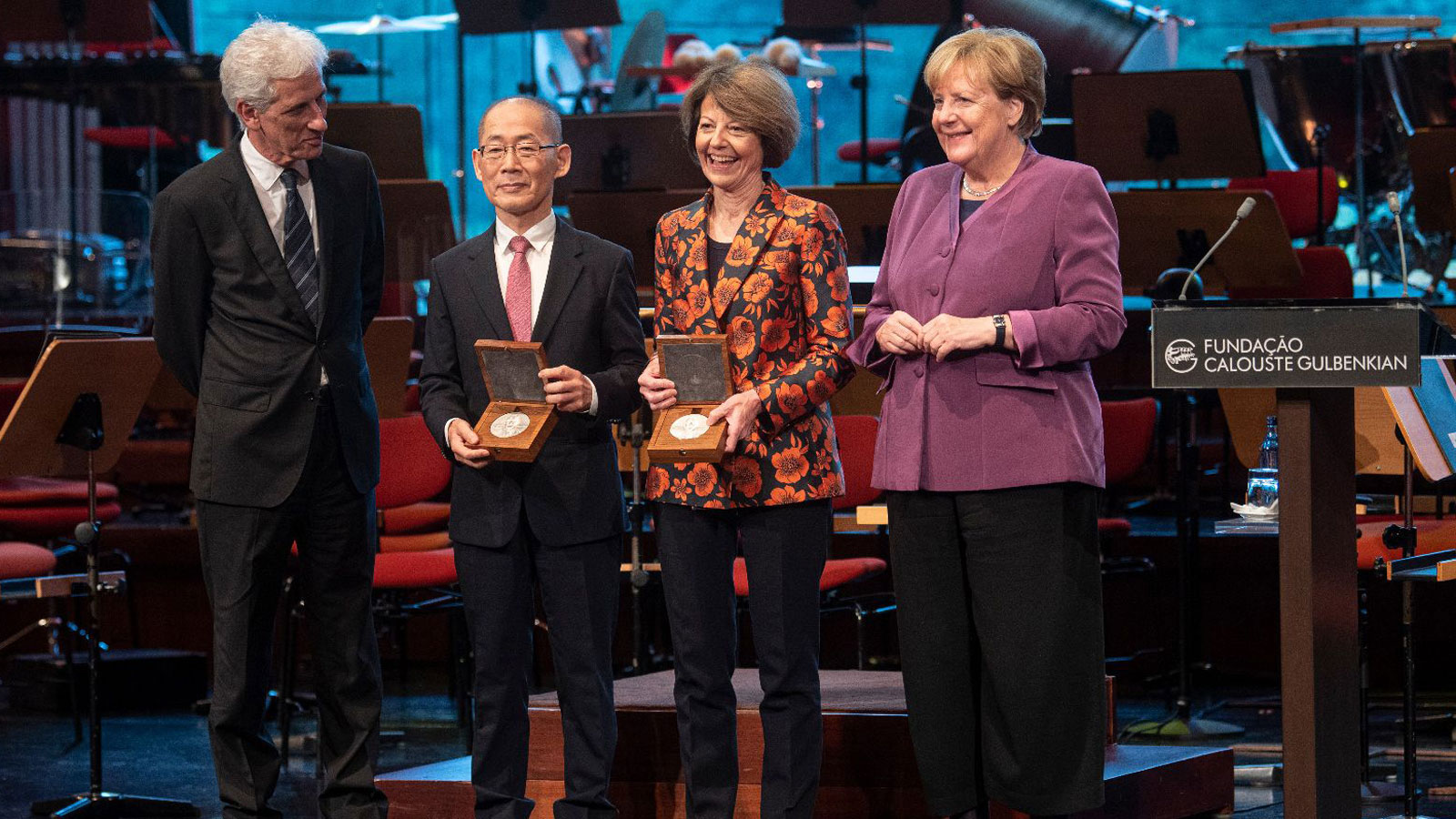
Covenant of Mayors for Climate and Energy
The second edition of the Prize recognised the importance of local action and the need for communities to develop solutions to the unique challenges they face. It was awarded to the Global Covenant of Mayors for Climate and Energy – a coalition of over 11,500 city leaders representing over a billion people worldwide. The Covenant has used the Prize money to fund two projects in Sub-Saharan Africa, helping cities by supporting energy transition and promoting climate resilience.
Greta Thunberg
Greta Thunberg was the first recipient of the Prize, awarded in recognition of her unprecedented work mobilising and inspiring younger generations around the world to demand action on climate. The Greta Thunberg Foundation donated the €1 million award to support grass-roots organisations in Brazil; help communities on the front line of climate change in India, Bangladesh and across the African continent; help efforts to make ecocide an international crime; support clean-up work following an oil spill off the coast of Mauritius; tackle malnutrition; and fund projects supporting people displaced by extreme weather events.

